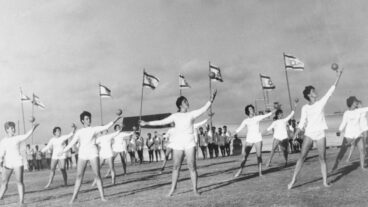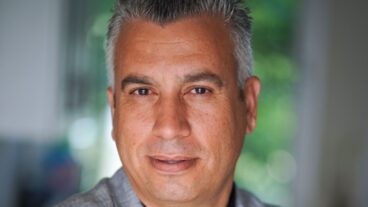Civilians can battle terrorism most effectively by going on with their normal lives despite alerts, according to Israeli analyst Boaz Ganor.Counter-terrorism expert Boaz Ganor has a message he’s been sending to Israelis for years and to Americans since Sept. 11 – terrorism is also an attitude or psychological problem, as opposed to merely a military problem.
In other words, terrorists have a political aim that can be achieved by establishing a psychological effect of fear, unlike other criminals for whom benefiting from the crime itself is the only objective. “If terrorists can terrorize by killing no one, they win,” Ganor said. “If they can’t terrorize by killing thousands, they lose.”
Thus, finding and eliminating terrorists, and reducing the military threat, is only half the battle. The crucial second half is a psychological problem – reducing the fear factor among citizens of countries threatened by terrorism. “A lot is being invested in thwarting the next attack,” but no one is trying to deal with the fear generated by the attack and the way it intimidates and demoralizes the civilian population, Ganor said.
Ganor, director of the International Policy Institute for Counter-Terrorism at the Interdisciplinary Center Herzliya in Israel, is stepping up the Institute’s outreach to policymakers in the United States after years of counter-terrorism work in Israel.
The Institute is a nonprofit organization dedicated to developing ways of teaching democratic societies how to thwart terrorism and reduce its psychological impact on civilians. In this effort, it sponsors outreach programs in Israel that send counselors to schools and workplaces to talk about how the dangers can be exaggerated.
The counselors give people statistics: During 2001, the worst year for terrorism in Israel’s recent history, only 250 people died from attacks, compared with more than 600 who died in car accidents. They then go on to distinguish between rational and irrational fears of terrorism and emphasize that people empower terrorists and allow them to win the psychological struggle by giving in to irrational fears. For example, instead of carrying on with their normal lives after terror attacks, people stay home and stop spending money, thus fulfilling the terrorist aim of damaging the economy. They allow their fears to undermine their own success.
“We personalize the attack, by assuming that we or somebody else we know is next in line,” Ganor said. “Hamas and other terrorist groups prime this fear by saying that they are sending more suicide attackers, whether they are planning to do so or not.”
Officials in the United States have made the strategic or psychological problem worse since Sept. 11 by issuing terrorist alerts, Ganor said. The repeated warnings are psychologically “like a terrorist attack, without one.” Few terrorism warnings actually come true, but they still cause people to stay home in fear, which fulfils the terrorists’ aims of disrupting and demoralizing a society. “Officials should only come through with a warning if there is something definite that can be done to stop the attack,” he said.
On another key issue, Ganor said he thinks Israel has kept up a good balance between maintaining civil liberties and fighting terrorism while the United States has jumped from virtually ignoring the possibility of domestic terrorism before Sept. 11 to doing things that may hurt innocent people or endanger liberal, democratic values following the attacks.
The United States didn’t learn from the lessons taught by the first attack on the World Trade Center in 1993, Ganor said. At that time, it was discovered that one of the suspects in the initial attack had participated in the plot from a U.S. jail cell, where he had been incarcerated for the assassination of Israeli Rabbi Meier Kahane in 1991.
“His fellow terrorists visited him in jail where they had free rein to discuss their plans,” he said. “This was a critical example of the lack of oversight over terrorism in this country until recently.”
A better tactical approach to terrorism following Sept. 11 will be difficult to establish, said Ganor, 40, who began studying counter-terrorism after serving in the Israel Defense Forces. What is needed is better intelligence, which requires the ability to infiltrate terrorist organizations in the Middle East, which in turn takes knowledge of Arab countries, agents who know Arabic, and the right connections.
In addition to advocating its views about coping with terrorism, the International Policy Institute for Counter-Terrorism prepares terrorism risk and threat assessments for airports and businesses and for the insurance industry.












